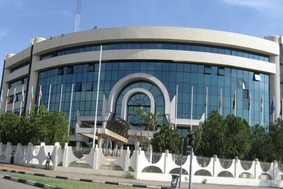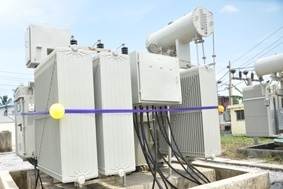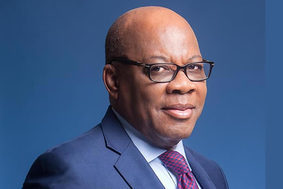Nigeria faces higher external borrowing costs on Trump victory

Feature Highlight
Yields on Nigeria’s $500 million bond and Kenya’s $2 billion bond have surged 160 and 170 basis points, respectively, since Trump’s victory.
The emerging markets bond selloff triggered by the surprise win of Donald Trump in the United States elections last week has caused the yields on Nigerian bonds to rise, a development that will make the Nigerian government’s external borrowing programme more expensive. According to data released by Bloomberg on Tuesday, the yield on Nigeria’s $500 million bond maturing in July 2023 has increased by 160 basis points to 8.47 per cent since Trump’s election victory.
The rate of return on the securities is the highest since February 2016, when oil prices plummeted to below $27 per barrel, causing Nigerian bond yields to soar.
President-elect Trump has promised increased infrastructure spending, tax cuts, among other measures to boost the U.S. economy. His tone in the wake of his election victory has reduced downside risk in the U.S. economy, creating a shift toward higher growth and inflation expectations. As inflation expectations rise, investors are demanding higher premium. U.S. 10-year Treasury yields have since risen from 1.7215 per cent on November 9, reaching 2.30 per cent on Monday, before settling at 2.224 per cent – its highest level in a year.
Investors also expect the Federal Reserve to raise interest rates at a faster pace, if the Trump administration carries out is stimulus programme. The rising U.S. bond yields and a more attractive dollar have caused the emerging market bonds selloff.
The Nigerian government's plan to tap the Eurobond market before the end of the year comes at a time of rising bond yields, resulting in much higher costs to raise external funding for government projects. In August, the Debt Management Office announced the government’s plan to issue a $1 billion Eurobond this year, becoming the first time the country will raise funds from the international financial markets since July 2013.
The current conditions in the international debt capital market may also not be favourable to President Muhammadu Buhari's overall $29.96 billion three-year external borrowing proposal, which has faced negative reactions from the National Assembly. The borrowing plan is for the period of 2016 to 2018 and is targeted at executing key infrastructural projects across the country.
As EM currencies fall, their equity markets have also fallen. The benchmark stock index of the Nigerian Stock Exchange dropped 1.92 per cent in the week between November 8 and November 15. On a year-to-date, the index has fallen by 9.72 per cent.
Apart from the impact on Nigerian securities, Bloomberg also reported that the yield on Kenya’s $2 billion bond due in June 2024 has surged 170 basis points to 8.54 per cent since the result of the U.S. 2016 elections was announced.
Martins Hile is Executive Editor, Financial Nigeria
Other Features
-
At 50, Olajide Olutuyi vows to intensify focus on social impact
Like Canadian Frank Stronach utilised his Canadian nationality to leverage opportunities in his home country of ...
-
Reflection on ECOWAS Parliament, expectations for the 6th Legislature
The 6th ECOWAS Legislature must sustain the initiated dialogue and sensitisation effort for the Direct Universal ...
-
The $3bn private credit opportunity in Africa
In 2021/2022, domestic credit to the private sector as a percentage of GDP stood at less than 36% in sub-Saharan ...
-
Tinubunomics: Is the tail wagging the dog?
Why long-term vision should drive policy actions in the short term to achieve a sustainable Nigerian economic ...
-
Living in fear and want
Nigerians are being battered by security and economic headwinds. What can be done about it?
-
Analysis of the key provisions of the NERC Multi-Year Tariff Order ...
With the MYTO 2024, we can infer that the Nigerian Electricity Supply Industry is at a turning point with the ...
-
Volcanic explosion of an uncommon agenda for development
Olisa Agbakoba advises the 10th National Assembly on how it can deliver on a transformative legislative agenda for ...
-
Nigeria and the world in 2024
Will it get better or worse for the world that has settled for crises?
-
The Movers and Shakers of Nigeria 2023
This special publication profiles 25 people and institutions based on their societal or industry impact in 2023.
Most Popular News
- IFC, partners back Indorama in Nigeria with $1.25 billion for fertiliser export
- Ali Pate to deliver keynote speech at NDFF 2024 Conference
- CBN increases capital requirements of banks, gives 24 months for compliance
- Univercells signs MoU with FG on biopharmaceutical development in Nigeria
- CBN settles backlog of foreign exchange obligations
- Euromonitor forecasts Sub-Saharan Africa GDP to grow to $4.5trn by 2040












